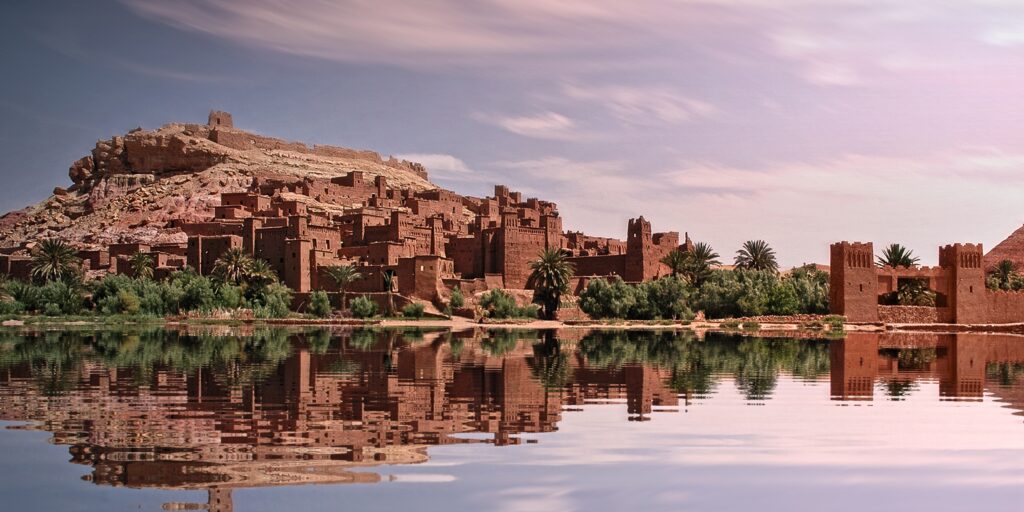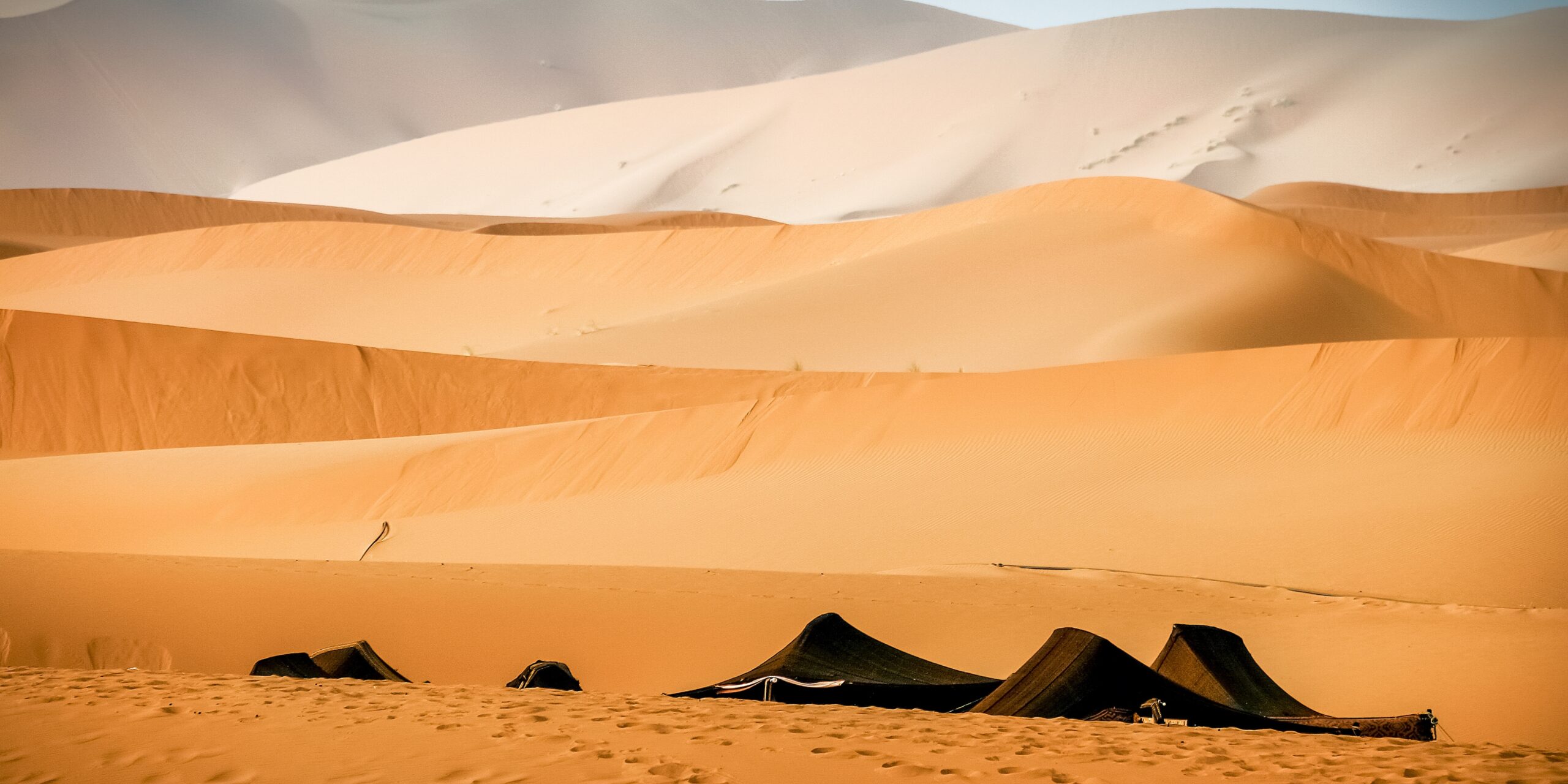Morocco is generally welcoming, but travelers should take sensible precautions. Stay informed about health risks and respect local customs to enjoy a safe trip. All visitors should be up-to-date on routine vaccines (MMR, tetanus, flu) and consider the CDC-recommended travel immunizations for Morocco: Hepatitis A and typhoid (due to contaminated food/water risk). The CDC also advises rabies vaccination if your itinerary involves close animal contact or remote areas. Malaria risk is very low (almost none in major cities; possible seasonal risk near Chefchaouen), so antimalarial pills are usually not needed – but use insect repellent to prevent mosquito- and sandfly-borne diseases (e.g. leishmaniasis). In mountain or desert areas carry sunscreen, a hat and plenty of fluids; heat stroke can be deadly, so drink often (water and rehydration salts) and limit exertion in the midday sun. Altitude sickness can occur in the High Atlas – ascend slowly and stay hydrated.
Cultural and Personal Safety

Dress and behave respectfully. Morocco is a Muslim-majority country, so modest clothing (covering shoulders and knees) is advised. Women can travel safely but should remain alert: avoid lone night walks, be cautious in crowds, and carry only necessary valuables. In medinas and markets (shown above), pickpocketing and scams can occur – keep purses and phones secure, use zippered bags or money belts, and never flash cash or jewelry. Use licensed taxis or vetted tour guides, and always agree on fares in advance. Download offline maps or hire guides to navigate the maze-like souks – getting lost is easy, but can be dangerous at night. If locals offer unsolicited help, be polite but firm if you feel uncomfortable. During Ramadan or religious occasions, show extra courtesy (for example, avoid eating/drinking in public during fast hours) to respect local customs.
Food, Water and Hygiene:

Stick to bottled or boiled water only, and skip ice cubes. Tap water in Morocco is not reliably safe to drink. Always ask for “eau minérale” or look for sealed bottles. Avoid raw vegetables, unpeeled fruit, undercooked meats and unpasteurized dairy products. Eat at busy, well-regarded restaurants or hotel buffets to reduce risk of traveler’s diarrhea. Carry oral rehydration salts or electrolyte drinks in case of stomach upset. Wash hands frequently with soap or sanitizer, and avoid touching your face. In hot weather, rehydrate constantly – drink water even before you feel thirsty – and consume salty snacks or sports drinks to replace electrolytes lost in sweat.
Vaccinations & Medicine

In addition to routine shots, most experts recommend Hepatitis A and typhoid vaccines for Morocco. A Tetanus/Diphtheria booster is also wise. Bring all necessary prescription drugs in original containers and a doctor’s note, as some medicines are regulated in Morocco. Carry a small first-aid kit with basics (bandages, rehydration salts, over-the-counter pain relievers and diarrhea remedies). Pharmacies (“pharmacie” signs) are common and often open 24/7 in cities. Moroccan pharmacists will usually fill foreign prescriptions or suggest local equivalents. If you have a chronic condition or allergy, learn the local medication name and carry a card (in French/Arabic) stating your condition – the CDC even recommends carrying an emergency medical ID card with blood type and allergies.

Healthcare Access

Public hospitals in Morocco may be under-resourced, especially outside major cities. Private clinics (in Casablanca, Rabat, Marrakech, etc.) generally offer better care; many are accredited by the Joint Commission International. Always carry travel health insurance – including medical evacuation coverage – to avoid being sent home for treatment. The CDC advises travelers to have a list of local English-speaking doctors and hospitals. For non-emergencies, use private clinics or consult pharmacies. In extreme cases, some travelers choose medical evacuation insurance. If you become ill, stay hydrated and seek care early. Do not enter Morocco if you have a serious infectious illness to avoid straining local healthcare.
Emergency Numbers & Consular Help

Dial 19 (or 112 from a mobile phone) for all emergencies (police, fire, ambulance). You can also use 150 (ask for ambulance or firefighters) and 190 (police), or 177 for rural gendarmerie. Note that Morocco does not use 911 or 999. Carry local emergency contacts: for example, U.S. citizens can call the U.S. Embassy in Rabat at +212‑537‑637‑200 (after-hours emergency +212‑661‑131‑939). The Canadian Embassy in Rabat is at +212‑537‑544‑949. The British Embassy’s 24/7 helpline in Rabat is +212‑537‑633‑333. (EU nationals can contact the EU Delegation: +212‑537‑579‑800.) To find consulate locations for your country, use official apps or websites: e.g., the U.S. Smart Traveler app or the Canadian Travel.gc.ca site, which include embassy locators. Always inform your embassy if you lose your passport or have a serious medical issue.

Recommended Online Tools & Widgets
Coming Soon


